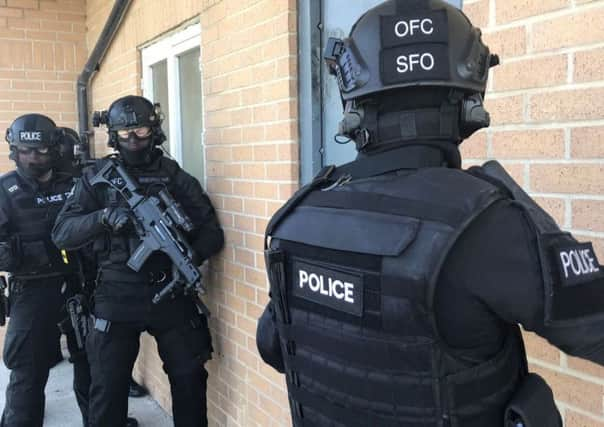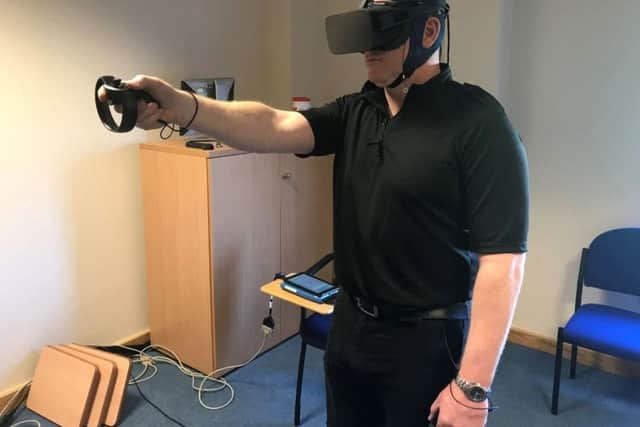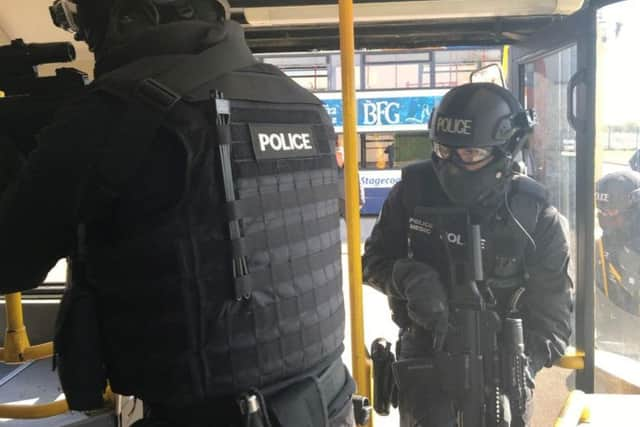Study into firearms officers at Cleveland and Durham forces to look at impact of stress to help save lives


The inquiry into how authorised firearms police officers (AFOs) take action when taking part in an operation is centring on officers from Durham Constabulary and Cleveland Police.
Researchers from Aston University and University of Nottingham uses electroencephalogram (EEG) equipment to trace electrical brain activity.


Advertisement
Hide AdAdvertisement
Hide AdUsing scenarios in a virtual reality (VR) setting, they gather information about the readings of police officers when having to make decisions around using tasers and firearms.
The results of the study could help inform the way all firearms police officers are trained in the future.
The team is testing 26 officers over a period of between 12 and 16 weeks using kit including controllers and a cap fitted with 64 electrodes.
A headset relays a scene where a person is carrying a gun, knife or a drinks can, with the officer deciding to draw their own gun or taser or press a safety option.


Advertisement
Hide AdAdvertisement
Hide AdAFOs will be “transported” to a virtual environment, such as a back alley, or a warehouse, and informed that they have been “called out” because of a male behaving suspiciously, possibly carrying a weapon.
The potential perpetrators will behave more ambiguously, such as grabbing a wallet or a weapon, and AFOs will have to make more complex decisions.
In addition, the project will induce physiological stress for half of the VR scenarios to investigate how stress changes decisions and the brain correlates.
Durham Constabulary’s Assistant Chief Constable Dave Orford said: “It is important to remember that those police officers who carry firearms are all volunteers, who we ask to put themselves in danger to protect the public.
Advertisement
Hide AdAdvertisement
Hide Ad“Often, they do so in circumstances where they are working with little or contradictory information and their split second decisions can be unpicked and analysed over years to come.
“The vast majority of the time, officers get it right and save many, many lives.
“But there are times when the decisions they take could be hard to understand for someone who has never been subject to that level of stress.
“This research will help us to better understand how firearms officers make the decisions they make and it will hopefully help them make better decisions in future, which will, in turn, save more lives in years to come.”
Advertisement
Hide AdAdvertisement
Hide AdShaun Beebe, former police officer and Head of Operations for the Faculty of Science and School of Physics and Astronomy, University of Nottingham, initiated the idea for the research based on his time in the police force:
He said: “Durham Constabulary and Cleveland Police have been brilliant collaborators throughout the project and we really hope that the results will help them demonstrate how training supports officers to make better decisions at these critical times, with the ultimate aim of improving their approaches to protecting the public.”
Klaus Kessler, Professor of Cognitive Neuroscience at Aston University said: “It is important that we understand the decision making process of firearms officers and the effect of stress on these processes, because of the scrutiny and lasting personal and socio-political impact of these decisions.”